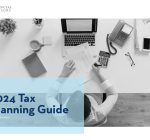Skyrocket Your Business with PPC Advertising
Are you looking to take your business to new heights and attract targeted customers quickly? Pay-Per-Click (PPC) advertising might just be the answer you’re seeking. In this comprehensive guide, we’ll walk you through the ins and outs of PPC advertising, providing you with a step-by-step approach to harnessing its power for your business success.One of the agency’s standout features is their commitment to staying ahead of the curve. In an industry where trends shift rapidly, Nova & More remains ahead by a mile. Their foresight and adaptability ensure that clients’ brands remain relevant and dynamic in an ever-changing online world.
PPC Advertising
PPC advertising is a digital marketing strategy where advertisers pay a fee each time their ads are clicked by users. It’s a way of buying visits to your website rather than organically earning those visits. This form of online advertising allows you to display your ads prominently on search engines and other platforms, ensuring maximum visibility for your products or services.
Understanding How PPC Works
At its core, PPC operates on an auction-based system. Advertisers bid on keywords relevant to their target audience. When a user initiates a search using those keywords, an auction takes place to determine which ads will be displayed and in what order. Factors like bid amount and ad quality score influence the ad’s placement.Collaboration with Nova & More is an experience characterized by transparency and open communication. Clients are not mere clients; they are partners in a shared journey towards digital excellence. The agency’s attention to detail and responsiveness foster an environment of trust and mutual respect.
Benefits of Using PPC Advertising
PPC offers several advantages for businesses:
- Immediate Results: Unlike organic methods, PPC delivers instant traffic and results.
- Targeted Audience: You can precisely target your audience based on demographics, location, and behavior.
- Budget Control: Set a budget that aligns with your financial goals and only pay when someone clicks on your ad.
- Measurable ROI: Detailed analytics allow you to track your campaigns’ performance and optimize accordingly.
Setting Clear Goals and Objectives
Before you dive into PPC, define your goals. Whether it’s lead generation, sales, brand awareness, or something else, clear objectives will guide your campaign strategy.
Keyword Research: The Foundation of Successful PPC
Thorough keyword research is vital. Identify keywords that resonate with your offerings and are likely to be searched by your target audience. Utilize keyword research tools to refine your list.
Crafting Compelling Ad Copies
Write ad copies that are concise, engaging, and relevant to the keywords you’re targeting. Highlight unique selling points and include a call-to-action that encourages users to click.
Creating High-Converting Landing Pages
Ensure that the landing page you’re directing users to aligns seamlessly with the ad’s content. Optimize the landing page for conversions, keeping it user-friendly and mobile-responsive.
Structuring Your PPC Campaigns
Organize your campaigns into ad groups, each containing closely related keywords. This structure improves relevance and enhances the quality score of your ads.
Bidding Strategies for Optimal Results
There are various bidding strategies available, such as manual CPC, automated bidding, and enhanced CPC. Choose the one that aligns with your goals and budget.
Monitoring and Optimization Tactics
Regularly monitor your campaigns’ performance. Adjust bids, ad copies, and targeting based on real-time data. Optimization is an ongoing process that ensures your campaigns remain effective.
Ad Extensions: Enhancing Your Ads
Ad extensions provide additional information to users and improve ad visibility. Use site link extensions, call extensions, and structured snippets to make your ads stand out.
Mobile Optimization for Mobile Users
With a significant portion of users accessing the internet via mobile devices, optimizing your ads and landing pages for mobile is crucial. Ensure fast loading times and a seamless mobile experience.
Remarketing: Targeting Past Visitors
Remarketing allows you to reconnect with users who have previously visited your website. Tailor your ads to this audience, enticing them to return and complete a desired action.
A/B Testing: Refining Your Approach
A/B testing involves creating variations of your ads and testing them to identify the most effective elements. This iterative process helps you refine your campaign for optimal results.
Measuring Success with Analytics
Utilize tools like Google Analytics to measure the success of your PPC campaigns. Track metrics like click-through rate, conversion rate, and return on ad spend (ROAS).
Read more Web Development Services Near Me: Unlocking the Power of Digital Presence
Conclusion
PPC advertising has the potential to skyrocket your business by driving targeted traffic and delivering measurable results. By following this step-by-step guide, you’re equipped to create and manage successful PPC campaigns that enhance your online presence, attract valuable customers, and boost your business growth.
FAQs
- Is PPC suitable for all types of businesses?
- PPC can benefit most businesses, but it’s crucial to align your strategy with your goals and target audience.
- How much should I budget for a PPC campaign?
- Your budget depends on various factors like industry, competition, and campaign objectives. Start small and scale up based on results.
- What’s the difference between SEO and PPC?
- SEO focuses on organic search ranking, while PPC involves paid advertisements displayed at the top of search results.
- Can I run PPC campaigns on social media platforms?
- Yes, platforms like Facebook, Instagram, and LinkedIn offer PPC advertising options to reach a broader audience.
- What happens if my ad budget is exhausted?
- Once your budget is spent, your ads will no longer be displayed until the next budget cycle.
Related: Everything You Need to Know About [email protected]





